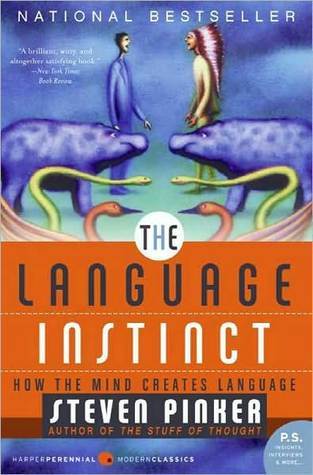More on this book
Community
Kindle Notes & Highlights
Read between
January 20 - January 20, 2020
Language is not a cultural artifact that we learn the way we learn to tell time or how the federal government works. Instead, it is a distinct piece of the biological makeup of our brains. Language is a complex, specialized skill, which develops in the child spontaneously, without conscious effort or formal instruction, is deployed without awareness of its underlying logic, is qualitatively the same in every individual, and is distinct from more general abilities to process information or behave intelligently.
· Flag
Azim
People can be forgiven for overrating language. Words make noise, or sit on a page, for all to hear and see. Thoughts are trapped inside the head of the thinker. To know what someone else is thinking, or to talk to each other about the nature of thinking, we have to use—what else, words! It is no wonder that many commentators have trouble even conceiving of thought without words—or is it that they just don’t have the language to talk about it?
the members of a language community receive an enormous benefit: the ability to convey a concept from mind to mind virtually instantaneously.
think about the “sane” alternative of depicting a concept so that receivers can apprehend the meaning in the form. The process is so challenging to the ingenuity, so comically unreliable, that we have made it into party games like Pictionary and charades.
The way language works, then, is that each person’s brain contains a lexicon of words and the concepts they stand for (a mental dictionary) and a set of rules that combine the words to convey relationships among concepts (a mental grammar).
“Daddy, what did you bring that book that I don’t want to be read to out of up for?”
Say Cape Cod. Until now you probably never noticed that your tongue body is in different positions for the two k sounds. In horseshoe, the first s becomes a sh; in NPR, the n becomes an m; in month and width, the n and d are articulated at the teeth, not the usual gum ridge.
in “correct” English, Richard Lederer notes, “Today we speak, but first we spoke; some faucets leak, but never loke. Today we write, but first we wrote; we bite our tongues, but never bote.”


